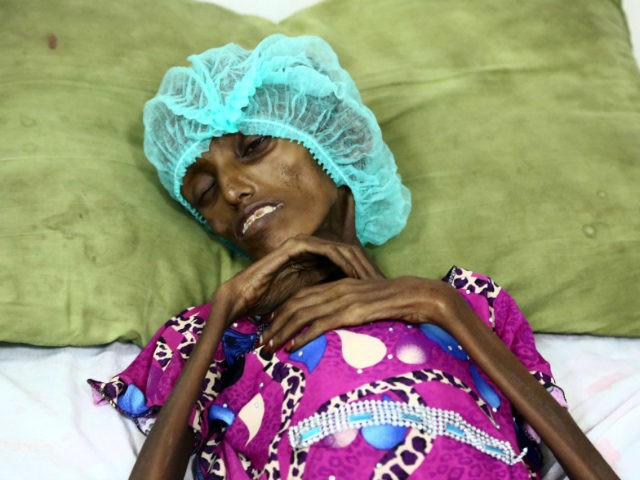WASHINGTON, D.C. — Nearly seven million people in Yemen are reportedly facing famine as the war-ravaged nation declines into further disarray.
“We are seeing the highest levels of acute malnutrition in Yemen’s recent history,” UNICEF Representative Dr. Meritxell Relaño said in a UN Food and Agriculture Organization (FAO) report.
“Of the 2.2 million children suffering from acute malnutrition, 462,000 are Severely and Acutely Malnourished (SAM).”
The FAO report states that “almost two-thirds of the population are now facing hunger and urgently require life and livelihood-saving assistance.”
“Either we die from the bombing or from the hunger,” a Yemeni woman named Fatima, who lives in a village in the port city al Hodeidah, told the Guardian.
In South Sudan, Somalia, Yemen, and north-east Nigeria combined, more than 20 million people are facing food insecurity, according to recent figures provided by the U.N.
According to a UN report, the cities of Taiz and al Hodeidah – which account for nearly 25 percent of Yemen’s population – are at greatest risk for slipping into famine. There are “an estimated 17 million people at ’emergency’ or ‘crisis’ levels of food insecurity,” according to the findings.
The UN report attributes this largely to fighting along the Red Sea coast which has, in turn, caused extensive damage to Yemen’s largest port, al Hodeidah. “This has disrupted imports, which account for 90 percent of Yemen’s staple foods” by slashing access. Access restrictions and the loss of boats, nets, and other gear have wiped out fishing, an important source of food and income.
However, starvation and malnutrition have been a problem in poverty-stricken Yemen long before the 2011 uprising that cast the country into the beginnings of a full-blown civil war.
Save the Children’s Yemen spokesperson Mark Kaye told the Guardian that the issue is more about access than funds, although both matter. “This crisis is happening because food and supplies can’t get into the country.” He added, “You can throw money at this all day but ultimately it’s about people being able to access what we are trying to provide.”
Iran-backed Houthi rebel fighters, who have destroyed much of the Hudaydah port while they import munitions for their war efforts, have reportedly exasperated the situation. In 2014, Houthis overran Sana’a, the capital of Yemen, and pushed the Saudi-backed government of President Abd-Rabbu Mansour Hadi out. Several months later, Hadi stated that the Iranian regime “would like to see the destruction of the country.”
Early Thursday morning, at least 42 Somali refugees, including children, were killed off the coast of Yemen, allegedly by Saudi-led fire from a helicopter. The refugees were reportedly headed north in hopes of fleeing the war-torn country.
Follow Adelle Nazarian on Twitter and Periscope @AdelleNaz.

COMMENTS
Please let us know if you're having issues with commenting.